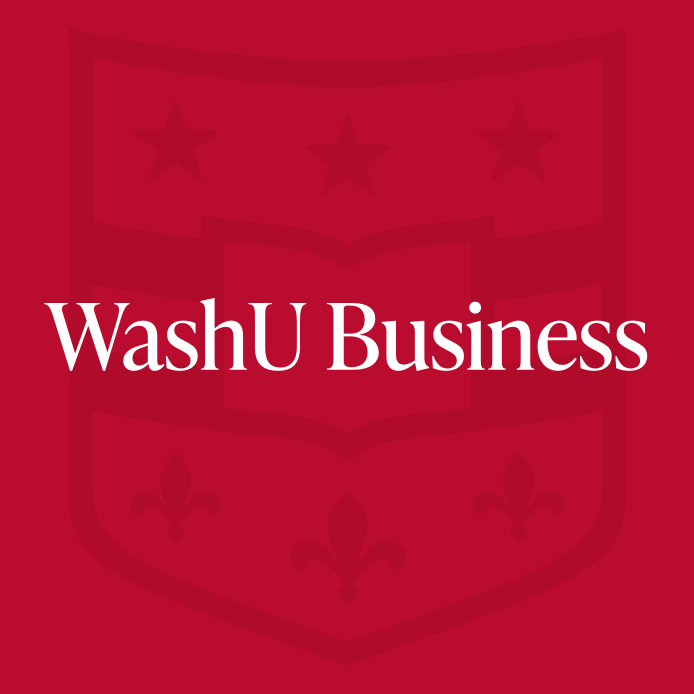No work experience? You can still succeed in your MBA
- August 26, 2022
- By WashU Olin Business School
- 4 minute read

So, you’re thinking about getting an MBA. You’re worried you may not have enough work experience to meet MBA degree requirements or succeed in an MBA program. You’re wondering what you can do to make your application stronger and maximize your experiences in school.
The secret? There’s not just one kind of student who succeeds in an MBA program. Knowing your personal “why” behind wanting your degree, being intentional in choosing meaningful experiences, and articulating those with maturity and introspection can help you be that student—no matter how much work experience you have.
How much work experience do you need to successfully apply to business school?
There’s no magic number that admissions committees are looking for when it comes to years of work experience for an MBA. Experience in the workplace will certainly benefit any MBA student; in fact, we typically see students with around five years of work experience. Often, those students have been in a working role and they’ve realized that they need specific skill sets to advance in their careers or to pivot in another direction. The MBA is the perfect way to accomplish that.
But can you get an MBA without work experience? The answer is yes.
While work experience is certainly valuable, no specific number of years guarantees an application’s success. What admissions committees are most concerned with is your ability to contribute to the classroom experience and get the most out of your MBA. To do that, students without previous work experience or a specific entrepreneurial goal in mind need to know their “why.”
Admissions committees want to see you articulate exactly why you want to be a part of their program and what you plan to get out of it. What benefits will your MBA bring to your life? How will it help you achieve your professional goals? What benefits will you bring to their program? Instead of just saying “I’ve always wanted to know more about business,” your reasoning really needs to be clear and solidified. Most of all, your “why” should be personal and show that you’ve been deeply reflective on meaningful experiences in your life or gaps in your knowledge.
What other factors help MBA students succeed?
Whether you’re applying or already working on your degree, knowing your why and targeting your experiences will ultimately benefit you in the long run. From taking specific classes that will help improve hard or soft skills to taking those opportunities outside the classroom to network, there is much a student can do to get ahead.
Extracurricular activities are a great way to diversify and build your skills and goals. Join clubs, go to seminars on and off campus and build meaningful relationships with your peers and professionals.
Your classmates are your support system for these two years, and many will likely be of some benefit to you in the future.
Having that openness to exploration—whether that be companies, industries, or networking—will help you take advantage of the experiential learning opportunities around you.
While you’re joining clubs and taking classes, remember to also volunteer to take on leadership opportunities in those forums. Whether on or off campus, leadership roles will allow you to work on people-management skills, develop networking opportunities and engage with diverse groups of people—all things you can leverage as you’re applying for an MBA or looking for internships.
Ultimately, who gets the most out of their MBA?
Students who are coming into MBA programs with work experience usually know some of their professional gaps and strengths. Maybe they’ve been through a few annual reviews or gotten a promotion or two. Most pursue an MBA wanting to contribute as much as they take away from the MBA program.
These students have specific goals, whether that be developing soft skills like management and teamwork or hard skills like data mining and forecasting. Being able to target these areas can help you maximize those strengths and develop other areas for growth.
Often, MBA students without work experience don’t have the confidence to know that they do have something to contribute. A simple but critical first step for students is to realize that you have valuable insights to share, such as professionally developed skills or other meaningful experiences. Classmates should be just as much of a resource to each other as the professors standing at the front of the classroom.
You should also be intentional about how you reflect on and articulate those contributions. As you go through the application process, include stories and anecdotes about your experiences and accomplishments in your essays. You need to be able to reflect on specific experiences and draw from those when you’re interviewing for admissions, internships and full-time employment offers.
Ultimately, there’s no work experience “required” for an MBA student to be successful at Olin Business School. Each student, regardless of work or lived experience, brings unique contexts, skills and ideas to their MBA program. Once you learn to leverage those traits by being intentional, knowing your “why,” and articulating that with clarity and reflection, the sky is the limit.
Media inquiries
For assistance with media inquiries and to find faculty experts, please contact Washington University Marketing & Communications.
Monday–Friday, 8:30 to 5 p.m.
Sara Savat
Senior News Director, Business and Social Sciences
